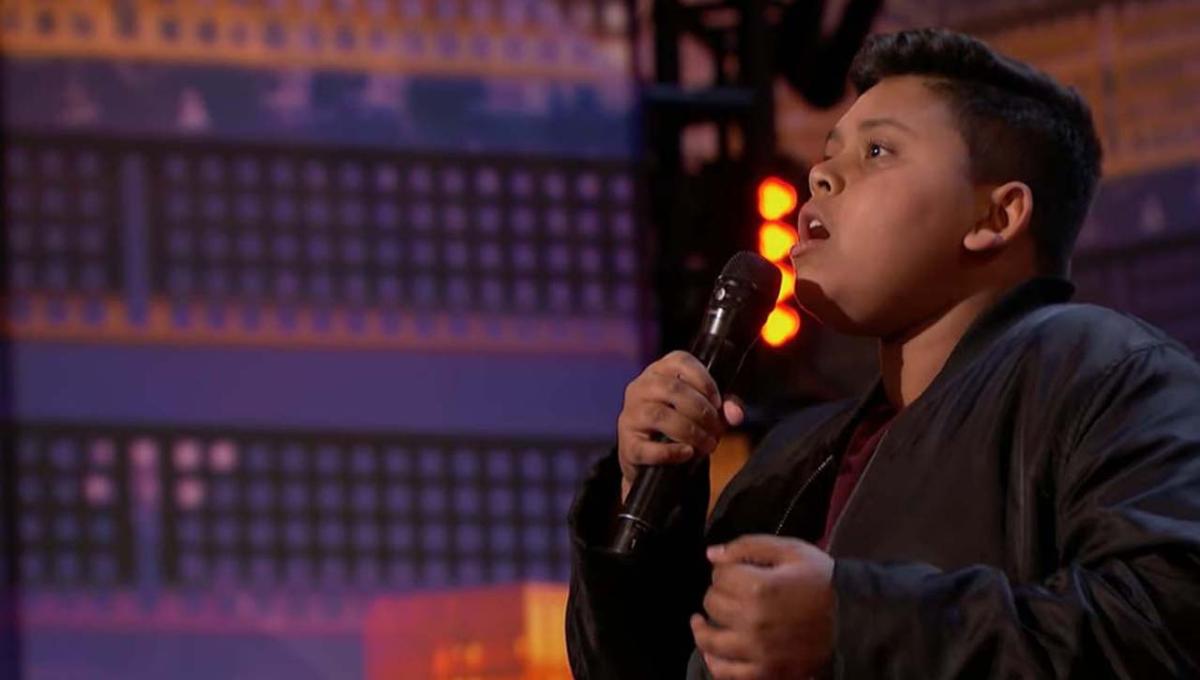When Talent Meets Humanity: The Night Simon Cowell Couldn’t Stop Laughing
In the endless universe of talent showcases, where spotlights illuminate unknown performers and dreams are thrust onto the world stage, some moments transcend the ordinary. They become more than performances—they transform into stories, stitched into the collective memory of audiences everywhere. One such moment came during an episode of America’s Got Talent, when a young singer stepped forward with nothing more than his voice, his courage, and the belief that he might just change his life.
The contestant was just twelve years old, a boy named Luke Islam, but as he walked into the light, he carried the weight of every child who has ever dared to dream. The anticipation in the room was electric. Spectators leaned forward in silence, waiting, sensing that something unforgettable was about to unfold.
When Luke began to sing, the transformation was instant. His voice was both tender and powerful—an ethereal current of melody that swept across the room like a tide. Each note carried emotion far beyond his years, weaving a spell over the audience and judges alike. It wasn’t just the technical precision of his performance; it was his sincerity, his passion, and the unmistakable authenticity that radiated through every word.
The auditorium erupted with applause. The audience, unable to contain their admiration, roared with approval. Luke’s song had become more than music—it was a message, a spark of unfiltered brilliance. And yet, even as the crowd celebrated, the moment took an unexpected turn.
Perhaps it was a stumble, or a burst of youthful exuberance that broke from the polished choreography, but suddenly the air shifted. What might have been a misstep transformed instead into a wave of laughter that rippled through the room. At its center, caught completely off guard, was Simon Cowell himself—the famously stoic arbiter of taste, the man whose sharp critiques had become legendary.
And then it happened: Simon laughed. Not the restrained chuckle of a judge maintaining composure, but a full-hearted, uncontainable release of joy. For a brief, shining moment, the critic was replaced by the human being—free, vulnerable, and delighted. The audience followed, laughter cascading through the hall until it felt as though the entire theater had been lifted by something larger than the show itself.
What followed became the true magic of the night. The Golden Buzzer, pressed by Julianne Hough, showered the stage in glitter and applause, sealing Luke’s performance as one of those rare milestones in the show’s history. But the real story wasn’t only the button, nor even the boy’s extraordinary voice—it was the way imperfection and spontaneity had created something bigger.
That night reminded everyone watching that talent isn’t defined by flawlessness. It’s measured in the moments that touch the human spirit, in the cracks where joy and authenticity break through. A stumble didn’t diminish Luke’s brilliance—it magnified it, because it revealed something real. It brought the mighty Simon Cowell to laughter, and with that laughter, the stage was transformed into something timeless.
In the great mosaic of talent competitions, this moment stands as a reminder: what endures in memory isn’t just perfection, but passion. Not just technical brilliance, but shared humanity. Luke Islam’s performance became more than a showcase of talent; it became a story of joy, vulnerability, and the unifying power of art.
For in the echo of Simon’s laughter, audiences didn’t just see a judge reacting to a contestant. They saw themselves—human, imperfect, and moved by the beauty of a child’s courage to stand, to sing, and to shine.


